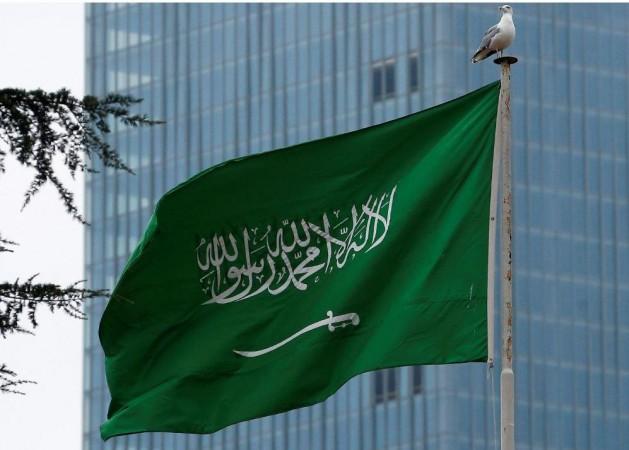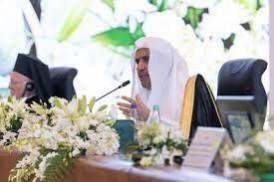Before these sweeping reforms, Saudi Arabia had repeatedly been accused of exporting Wahhabism, a puritanical interpretation of Islam, to many countries around the world. The country was known to fund the building of mosques, educational institutions, cultural centres, and other organizations to spread Wahhabi theology. The export of Wahhabism began after the Islamic revolution in Iran in 1979, which had shaken the Saudis, and they felt threatened by Iran's Shiite ideology.
The Saudis launched an ideological offensive and started exporting their own ideology. Critics argue that Wahhabism's rigidity has led to the misinterpretation and distortion of Islam, pointing to extremists such as Osama bin Laden and the Taliban. Saudi-backed madrasas in Pakistan and Afghanistan have also played a significant role in the strengthening of radical Islam there. In recent decades, the Saudis have spent up to an estimated $100 billion spreading Wahhabism and perpetuating the notion that they are Islam's caretaker.

Now that countries around the world have taken measures to counter the spread of Wahhabism, Saudi Arabia is leading these counter measures, which include criticism of Wahhabism by scholars, judicial actions by the Saudi government, educational reforms to remove extremist content, interfaith dialogue to promote moderation, support for alternative Islamic movements, counterterrorism cooperation, and public awareness campaigns. Part of these inter-faith dialogues includes and dominates India-Saudi Arabia relations, India being home to its 174 million Muslims.
These India-Saudi Arabia relations are characterized by strong and close ties, particularly in terms of commercial interests. The bilateral trade between the two countries has been steadily growing, with Saudi Arabia being India's fourth-largest trade partner. Energy cooperation is a significant aspect, as Saudi Arabia is a major source of crude oil for India. The Indian community in Saudi Arabia is the largest expatriate community in the country. Both nations have collaborated in counterterrorism efforts and expressed interest in investing in the renewable energy sector. The relationship extends to various sectors, including defence, security, investments, science and technology, education, and trade. The economic and trade relationship is of great importance to both countries, and they are committed to further enhancing their ties.
In this context, Muhammad bin Abdul Karim Issa, a Saudi Arabian politician, and Secretary General of the Muslim World League, and a leading global voice on moderate Islam and the fight against extremist ideology was on a five-day visit to India. Sheikh al-Issa addressed a large congregation at Islamic Centre in Delhi, where he publicly appreciated the history and diversity of India and maintained that Indian Muslims were proud of their country. He said that India is a great model of co-existence to the entire world, and it was the duty of all Indians to be patriotic.

As Muslim World League chief, Mohammad Bin Abdulkarim Al-Issa criticized terrorist organizations and emphasized that Islam and terrorism had nothing to do with each other during his visit to India. He assured that the Muslim World League was actively working to eliminate ideological ideas that contribute to terrorism, while addressing a gathering at the Dialogue for Harmony among Religions. Earlier also, in a 2012 lecture, Al Issa had argued that Salafism should not be viewed as Islam and emphasized that it is a moderate approach based on following ancestors' beliefs and values in understanding Islam. Issa is opposed to political Islam, saying that it does not reflect the true values of Islam and prevents assimilation of Muslims living in non-Muslim countries.
In 2022, Dr. Al-Issa had delivered a moderate message promoting harmony and compassion during his hajj sermon at Masjid Nimra, calling on Muslims to avoid dissent and animosity and to promote tolerance and understanding, emphasizing that Islam's goodness extends to all of humanity. Dr. Al-Issa led a historic delegation of senior Muslim scholars and leaders to Auschwitz in January 2020 to condemn the atrocities against Jews during World War II and express solidarity against oppressors and led a similar delegation in January 2022. The "Forum on Common Values among Religious Followers" was organized by Muslim World League in Riyadh in May 2022, bringing together leaders and scholars of various religions to promote values that bind all religions and issue a declaration of "Common Human Values".
The forum was successful in denouncing the idea of an 'inevitable clash of civilizations' due to religious issues, and religious leaders agreed that religion must not be employed for worldly purposes.
Similarly, The Charter of Makkah or the Makkah Declaration, largely conceived and realized by the Muslim World League and presented by Saudi King Salman bin Abdulaziz Al Saud in May 2019, is a pan-Islamic set of principles that support anti-extremism, religious and cultural diversity, tolerance and legislation against hate and violence, approved by Islamic leaders of 139 countries and signed by around 1,200 prominent Muslim figures. Now that Saudi Arabia is on a path towards coexistence and harmony, it remains to be seen what effect these changes have on the Indian Muslim community, their political leadership and their Muslim organisations which include religious groups and schools of thought.
[Disclaimer: This is an authored article by Arshia Malik. Views expressed are author's own.]














